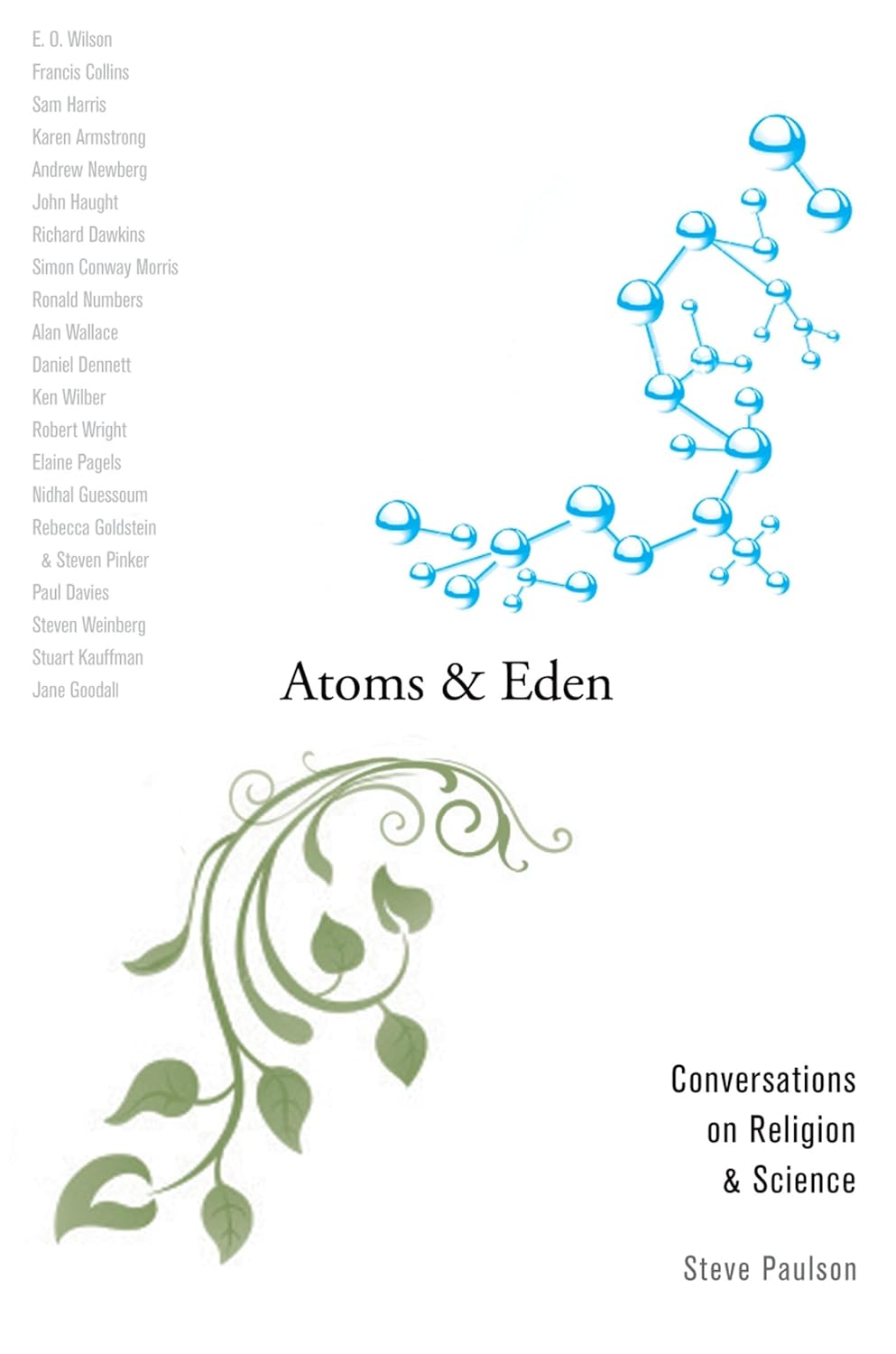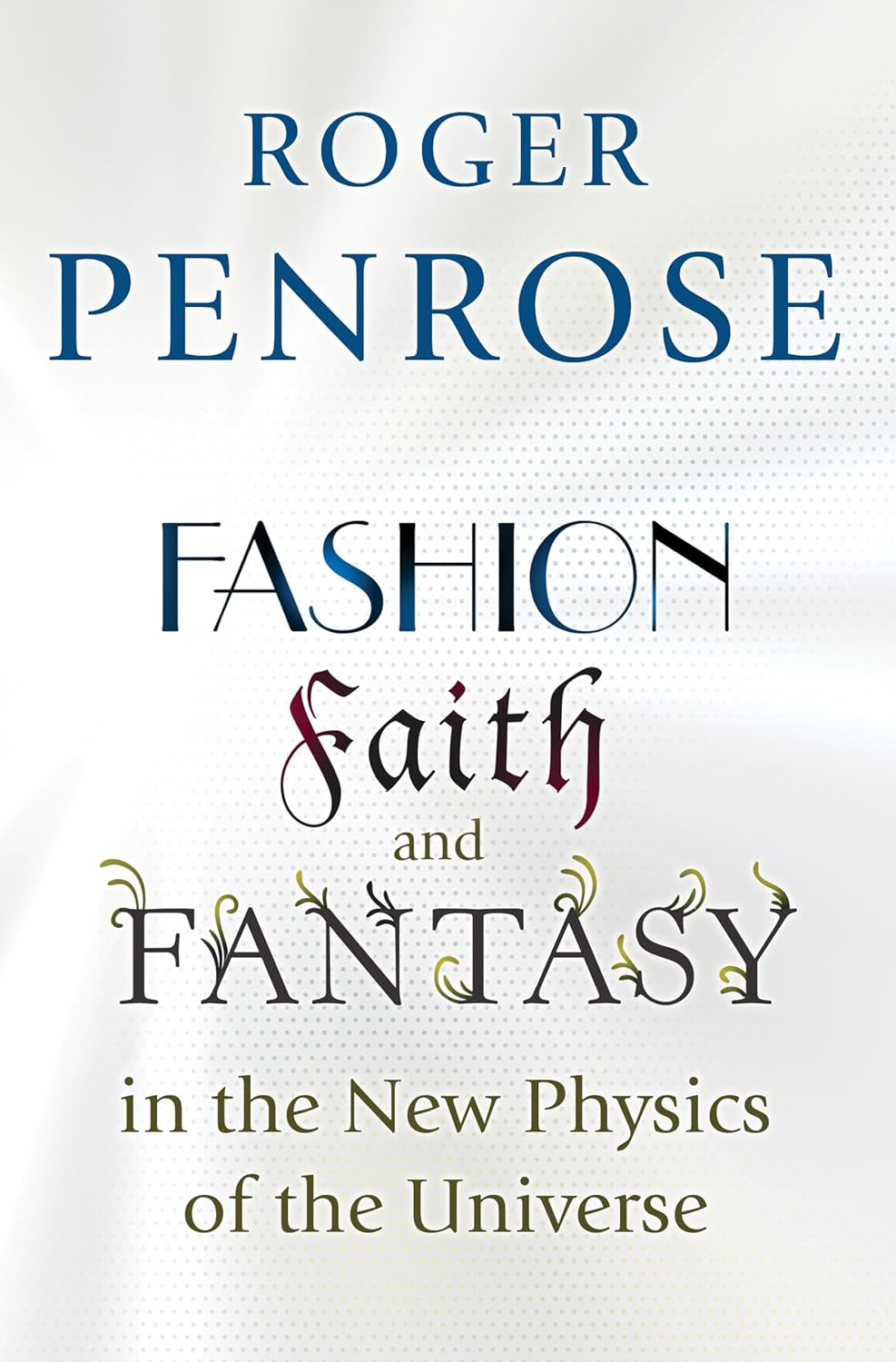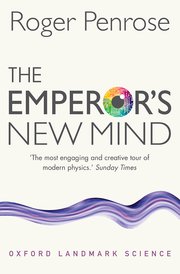When materialist assumptions about the mind begin to sound dated…
A 2017 profile of Roger Penrose and his consciousness theory was penned before slow changes and major tumults rocked the discipline — and it showsIt is often hard to know whether the winds of change are blowing in any one direction or just blowing around.

But Nautilus, by republishing Steve Paulson’s 2017 essay on Roger Penrose and his quantum-based theory of consciousness earlier this month, provided an opportunity with respect to the concept of consciousness: Did anything about Paulson’s profile of now 93-year-old physicist sound, well, dated?
Yes, a few things did not age well. And, of course, the interesting question is why.
Paulson, executive director of Wisconsin Public Radio, is best known for the nationally syndicated show To the Best of Our Knowledge. He begins his attempt to explain why top physicist Roger Penrose thinks that consciousness does not compute by setting Penrose up as, well, somewhat ridiculous:
Once you start poking around in the muck of consciousness studies, you will soon encounter the specter of Sir Roger Penrose, the renowned Oxford physicist with an audacious—and quite possibly crackpot—theory about the quantum origins of consciousness. He believes we must go beyond neuroscience and into the mysterious world of quantum mechanics to explain our rich mental life. No one quite knows what to make of this theory, developed with the American anesthesiologist Stuart Hameroff, but conventional wisdom goes something like this: Their theory is almost certainly wrong, but since Penrose is so brilliant (“One of the very few people I’ve met in my life who, without reservation, I call a genius,” physicist Lee Smolin has said), we’d be foolish to dismiss their theory out of hand.
Steve Paulson, “Roger Penrose On Why Consciousness Does Not Compute,” Nautilus, April 27, 2017
Consciousness studies are pretty energetic muck
This damnation with faint praise for Penrose — presumably for not being a straightforward Daniel Dennett-style materialist — was written well before leading neuroscientist Christof Koch lost the 25-year wager with philosopher David Chalmers because he failed to find a “consciousness spot” in the brain (and a Cancel mob showed up shortly afterward for Koch). Consciousness studies today is a field in great ferment but not best described as “muck.”

Paulson, the author of Atoms and Eden: Conversations on Religion and Science (Oxford University Press 2010), interviewed Penrose when he was 85:
The breadth of Penrose’s interests is extraordinary, which is evident in his recent book Fashion, Faith and Fantasy in the New Physics of the Universe —a dense 500-page tome that challenges some of the trendiest but still unproven theories in physics, from the multiple dimensions of string theory to cosmic inflation in the first moment of the Big Bang. He considers these theories to be fanciful and implausible.
Paulson, “Does Not Compute”
That said, we receive multiple subtle warnings from Paulson about Penrose, his theory, and his collaborator, physicist Stuart Hameroff. Hameroff contributed the element to Penrose’s Orch OR theory of consciousness that the quantum collapse may be happening in the microtubules of neurons — essentially the skeletons of the cells.
Penrose doesn’t seem to mind being branded a maverick, though he disputes the label in regard to his work in physics. But his theory of consciousness pushes the edges of what’s considered plausible science and has left critics wondering why he embraces a theory based on so little evidence.
Paulson, “Does Not Compute”
True, Penrose and Hameroff’s theory is one of maybe twenty theories of consciousness out there. But are these theories really more implausible than the reams of nonsense written in favor of string theory and the multiverse? By what standard?
Paulson acknowledges the problem:
Even if the human brain’s neurons, synapses and neurotransmitters could be completely mapped—which would be one of the great triumphs in the history of science—it’s not clear that we’d be any closer to explaining how this 3-pound mass of wet tissue generates the immaterial world of our thoughts and feelings. Something seems to be missing in current theories of consciousness. The philosopher David Chalmers has speculated that consciousness may be a fundamental property of nature existing outside the known laws of physics. Others—often branded “mysterians”—claim that subjective experience is simply beyond the capacity of science to explain.
Paulson, “Does Not Compute”
Unspoken assumptions
Is there is an unspoken assumption here?: That consciousness should be fully explainable as a physical phenomenon. That that is what a scientific explanation must be. Even Penrose says he wants that.
But what if that just isn’t the way the universe works?
There is also a double standard (taken for granted):
The most damning critique has come from Max Tegmark, a professor of physics at the Massachusetts Institute of Technology, who calculated that any quantum effects within microtubules would break down after 100 quadrillionths of a second. “For my thoughts to correspond to a quantum computation, they’d need to finish before decoherence kicked in, so I’d need to be able to think fast enough to have 10,000,000,000,000 thoughts each second,” Tegmark writes in his 2014 book Our Mathematical Universe: My Quest for the Ultimate Nature of Reality. “Perhaps Roger Penrose can think that fast, but I sure can’t.”
Paulson, “Does Not Compute”
Clever. But wait. Max Tegmark is perhaps best known for his far out multiverse theories. In short, theories can be far out as long as… well, what are the rules anyway?
Is consciousness really computational?

Paulson tells us that Penrose told him that his interest in consciousness derives from Gödel’s incompleteness theorem, which showed that understanding is not computational:
After we’d talked for 20 minutes, I pointed out that he still hadn’t mentioned biology or the widely held belief that consciousness is an emergent property of the brain. “I know, I know,” he chuckled, and then told me why he felt compelled to write his first book on consciousness, The Emperor’s New Mind, published in 1989. It was after he heard a BBC interview with Marvin Minsky, a founding father of artificial intelligence, who had famously pronounced that the human brain is “just a computer made of meat.” Minsky’s claims compelled Penrose to write The Emperor’s New Mind, arguing that human thinking will never be emulated by a machine. The book had the feel of an extended thought experiment on the non-algorithmic nature of consciousness and why it can only be understood in relation to Gödel’s theorem and quantum physics.
Paulson, “Does Not Compute”
Is anyone taken seriously in neuroscience/philosophy of mind today who thinks that the human brain is just a computer made of meat? Even back in 2017, it was becoming dicey:
Minsky, who died last year, represents a striking contrast to Penrose’s quest to uncover the roots of consciousness. “I can understand exactly how a computer works, although I’m very fuzzy on how the transistors work,” Minsky told me during an interview years ago. Minsky called consciousness a “suitcase word” that lacks the rigor of a scientific concept. “We have to replace it by ‘reflection’ and ‘decisions’ and about a dozen other things,” he said. “So instead of talking about the mystery of consciousness, let’s talk about the 20 or 30 really important mental processes that are involved. And when you’re all done, somebody says, ‘Well, what about consciousness?’ and you say, ‘Oh, that’s what people wasted their time on in the 20th century.’ ”
But the study of consciousness has not gone the way Minsky had hoped. It’s now a cottage industry in neuroscience labs and a staple of big-think conferences around the world.
Paulson, “Does Not Compute”
If that was true then, it is even more so now.
Is simple materialism out of date?
Specific assumptions in Paulson’s interesting and instructive profile seem particularly to be a product of their time, for example:
“In some ways, Penrose and Hameroff are the odd couple of science. Hameroff is upfront about his spiritual views, talking openly about the possibility of the soul existing after death. Penrose is an atheist who calls himself “a very materialistic and physicalist kind of person,” and he’s bothered by New Agers who’ve latched onto quantum theories about non-locality and entanglement to prop up their paranormal beliefs.
Paulson, “Does Not Compute”
Soul existing after death? A lot has surely changed in seven years. Serious study of the mind remaining active during/after clinical death is simply a fact of research life now.
And going forward?
Paulson asks,
Suppose 20 or 200 years from now the broad outlines of Orch-OR are confirmed. Have we explained consciousness—or just pushed the mind-brain problem into a deeper mystery, the quantum mind-body problem? Can we ever bridge the gap between the physical and immaterial worlds?
Paulson, “Does Not Compute”
Well, British poet Tennyson wrote — in praise of an adventurous scientific spirit,
Yet all experience is an arch wherethro’
Gleams that untravell’d world whose margin fades
For ever and forever when I move.
Science is about the nature of the world we live in, including ourselves. It does not guarantee to anyone that the answers will, in principle, be materialist, physicalist, naturalist, eliminationist, or anything similar. If nature is not all there is, we can be reasonably certain that not all answers will be like that.
Paulson’s profile is written as if shortly down the road physicalism or eliminationism or some such thing is surely going to prevail. But that seems much less likely now than it perhaps did then. In that context, Paulson’s fascinating profile feels like a snapshot of a time just before the immaterial nature of the human mind started to become unambiguous.
